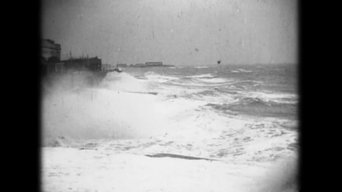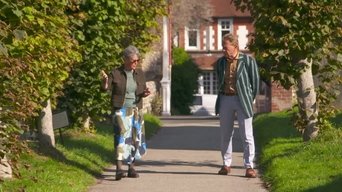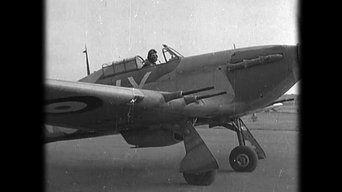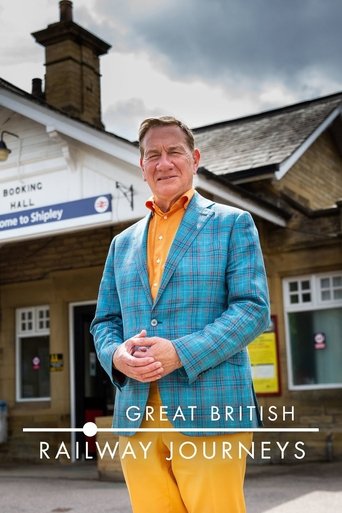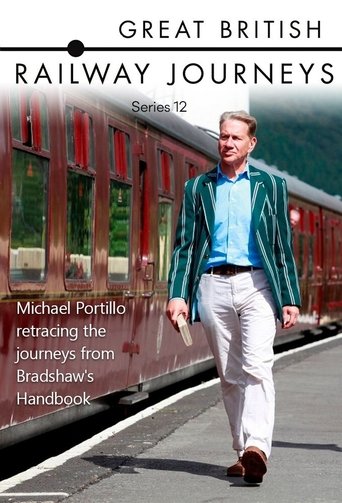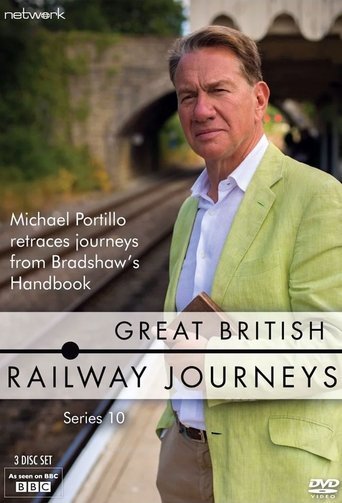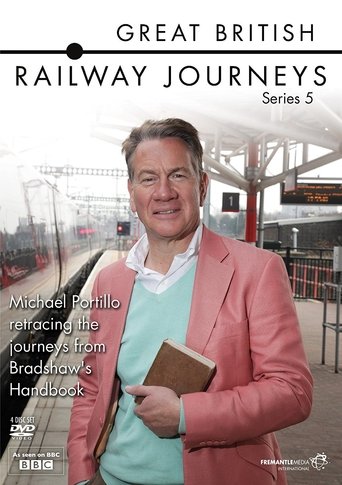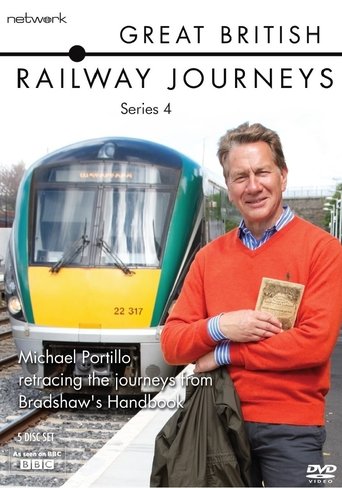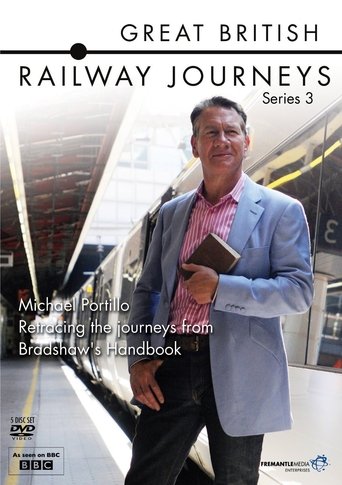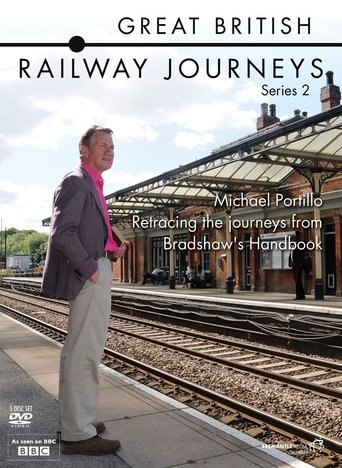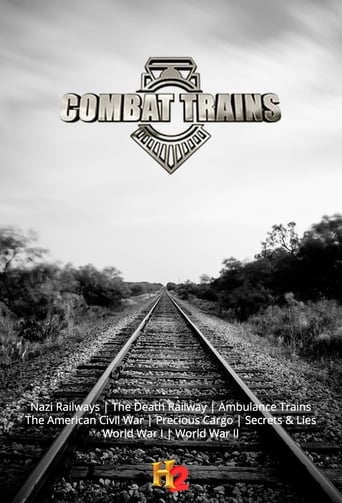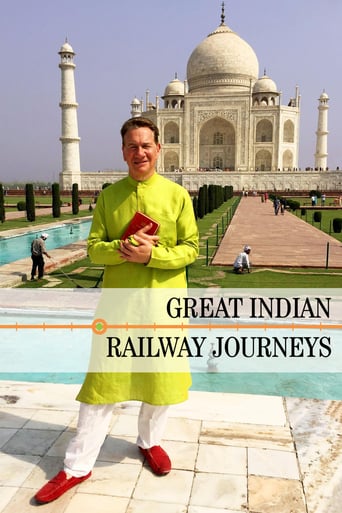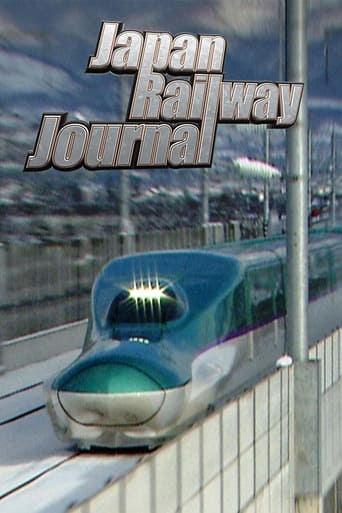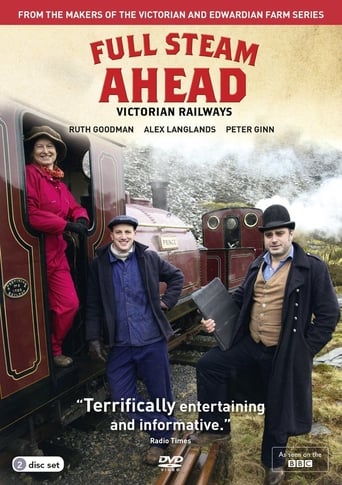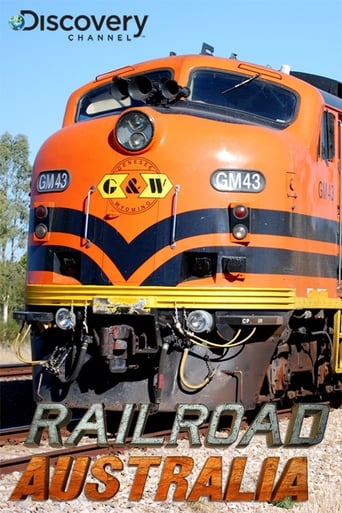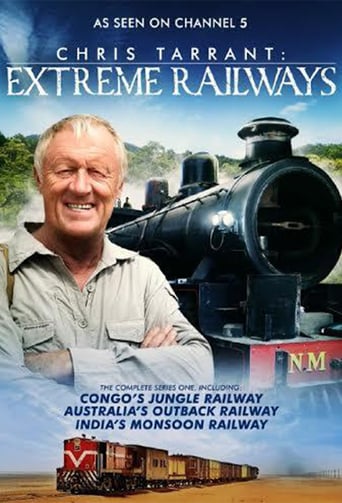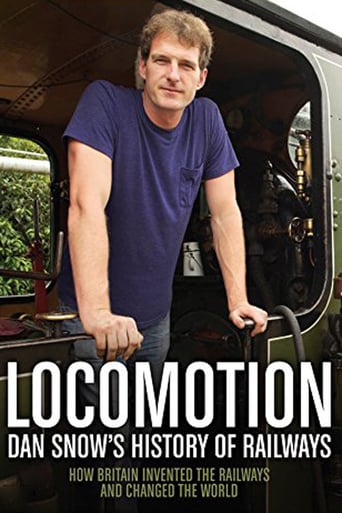Great British Railway Journeys Season 13
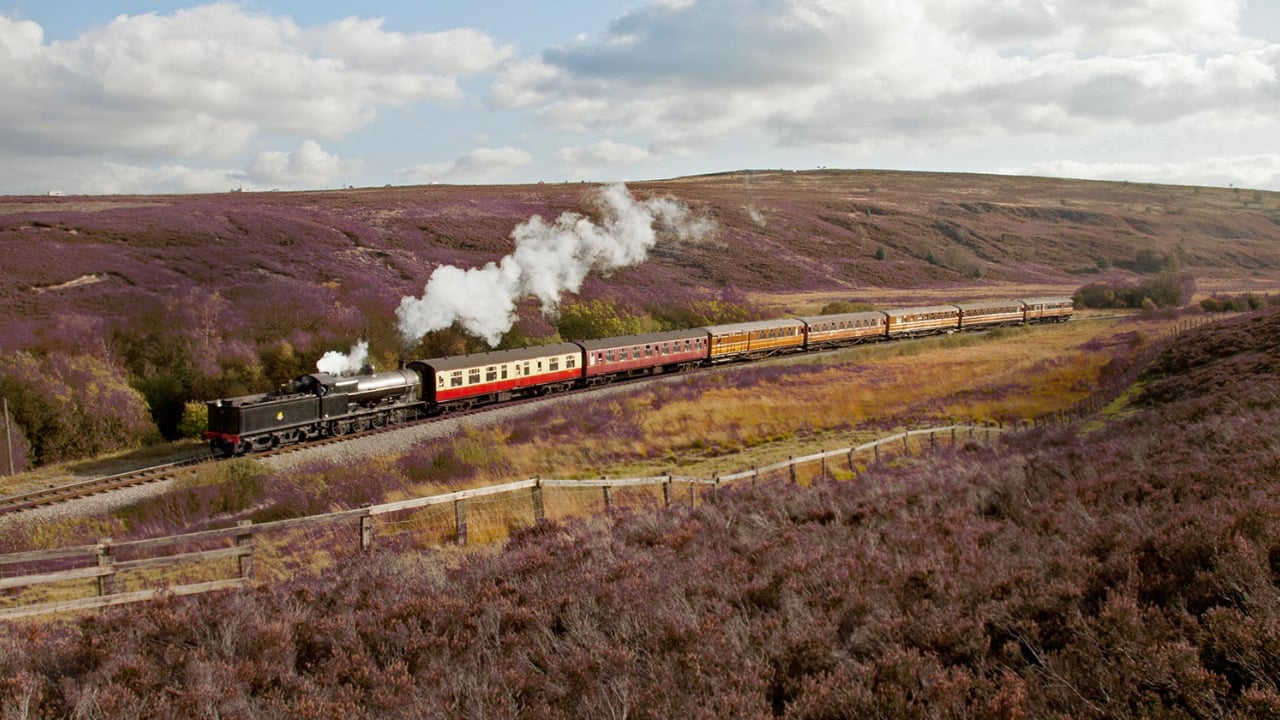
Michael Portillo takes to the tracks with a copy of George Bradshaw's Victorian Railway Guidebook. Portillo travels the length and breadth of the country to see how the railways changed us, and what of Bradshaw's Britain remains.
Watch NowWith 30 Day Free Trial!
Great British Railway Journeys
2010
Michael Portillo takes to the tracks with a copy of George Bradshaw's Victorian Railway Guidebook. Portillo travels the length and breadth of the country to see how the railways changed us, and what of Bradshaw's Britain remains.
Watch Trailer
With 30 Day Free Trial!
Great British Railway Journeys Season 13 Full Episode Guide
Michael Portillo discovers the origins of Harry Beck's map of the London Underground, learns about a shocking surrealist show in 1930s Piccadilly and explores the headquarters of Churchill's war cabinet.
Armed with his 1930s Bradshaw’s guide, Michael is in London, where he tracks the River Thames from east to west. Michael is drawn to the industrial eastern suburb by the unexpected sound of pipes. He finds their origins in a Sunday school band for girls begun by a cleric in the 1930s. Still going strong, the Dagenham Girl Pipers explain their history and success, as well as treating Michael to a performance of Tipperary. Aboard a Thames Rocket boat, Michael finds out how the river is both the lifeblood of and an existential threat to the capital. He hears how a great flood claimed 14 lives in 1928 and investigates how London is protected today on a visit to the Thames Barrier. Michael finishes this leg of his tour at one of London’s most iconic buildings, Battersea Power Station, built during the 1930s by Giles Gilbert Scott.
Michael’s Bradshaw’s-inspired rail tour of London continues in Hampstead, where shortly before the outbreak of the Second World War, a groundbreaking Jewish doctor found refuge. Sigmund Freud fled the Austrian capital of Vienna by train to escape the Nazis, who branded his work degenerate. Michael hears how the father of psychoanalysis was warmly welcomed in London and sees the famous couch, upon which patients would lie to recount their dreams. In St John’s Wood, Michael discovers how Britain went on record between the wars at the Abbey Road Studios. He is amazed by the cavernous space in which Sir Edward Elgar and the London Symphony Orchestra played at the grand opening ceremony in 1931, and he's awed by the list of famous names to follow their lead, topped by the Beatles, who immortalised Abbey Road on an album cover. A young violinist brings Studio 2 to life with a tribute to Elgar.
Michael continues his travels through the capital in the heart of London’s East End. Michael explores Hackney Wick, today transformed from the time of his 1930s Bradshaw’s guide, when factories belched smoke and the Communist Party of Great Britain launched The Daily Worker. Michael hears about the newspaper’s origins and aims from the editor of its modern incarnation, The Morning Star. A bout in the ring at Repton Boxing Club has Michael floating like a butterfly - if not stinging like a bee - as he discovers one of Britain’s greatest fighters, Ted 'Kid' Lewis. Michael is captivated by the story of the Jewish refugee from the Russian pogroms, who twice became welterweight champion of the world. A night at one of the earliest railway hotels, the Great Northern, sets the scene for Michael to explore the railway revolution of the interwar years, when around 150 companies were rationalised into the 'big four', heralding a golden age of glamour, speed and style.
Michael continues his journeys in greater London. Beginning on its southeastern fringe in the leafy and historic village of Chislehurst, Michael finds surprising imperial connections and a dark labyrinth beneath. Michael discovers that during the years between the wars, a mushroom farm thrived in the 22 miles of man-made passages and tunnels. Once war broke out, however, he finds that the caves became one of the largest public air raid shelters in the land, offering refuge to up to 15,000 people. Next stop is Eltham, boyhood haunt of Henry VIII, who grew up in its grand royal palace. Michael investigates how, in the early 1930s, a wealthy couple rescued it from dereliction and created their own 'grand design' of the day. Stephen and Virginia Courtauld restored the magnificent great hall and added a vast new mansion, which embraced the art deco style and mod cons of the period. Michael marvels at the opulent design and the glamorous cocktail parties hosted by the pair.
Armed with his interwar copy of Bradshaw’s Guide to the Railways, Michael reaches the Kent seaside resort of Herne Bay, where he learns about a pioneering aviatrix who began her working life as a typist in Hull but whose epic achievements made her an international celebrity. Michael takes the train five miles west along the coast before heading offshore into the entrance to the Thames Estuary. He is amazed by seven enormous steel sea forts, which loom out of the water 90 feet above the seabed. The engineering involved in constructing these impressive structures is awe-inspiring, as is their role in protecting the nation from enemy bombing during the Second World War. In the seaside town of Whitstable, Michael tucks into its famous staple, oysters. He then crosses the North Downs to Lenham, from which he visits Leeds Castle, the 'loveliest castle in the world' and home between the wars to the visionary Lady Olive Bailey.
From the Kent Cinque Port of Deal, Michael heads to the splendid Walmer Castle, home during the 1920s to a Lord Warden of the Cinque Ports, Lord Beauchamp. Michael’s guide, the founder of the LGBTQ working group for English Heritage, tells Michael of the lavish homosexual parties Lord Beauchamp held at the castle and how his openly hedonistic lifestyle, at a time when homosexuality was illegal, resulted in his exile from the country. Tracking the east Kent coast, Michael reaches the Royal Harbour of Ramsgate, where he remembers the courage of the little ships that evacuated men from the beaches of Dunkirk in 1940. Michael goes deep underground to see where the town’s residents sheltered from enemy bombs in a two-and-a-half mile long disused railway tunnel, some for up to five years. Next stop is Margate, 'an exuberant resort' according to Bradshaw’s and the holiday destination of choice for Londoners drawn by the town’s pioneering amusement park, Dreamland.
Michael Portillo follows his 1930s Bradshaw’s guide to the unspoilt East Sussex port of Rye, where he learns about the loss of a generation of lifeboatmen in 1928 and explores a wartime pillbox. On the beaches at Rye, Michael explores one of 28,000 pillboxes constructed around the British coastline during World War II and hears from a military historian about how the nation prepared for an expected German invasion. Train heaven beckons as Michael boards the Romney, Hythe and Dymchurch railway to cross Romney Marsh en route to Dungeness. Along the way, he hears about the eccentric inventor of the railway, Count Louis Zborowski. From Dungeness, Michael heads to the former RAF base of Denge, where he discovers a cluster of giant concrete structures with an intriguing name, Sound Mirrors. The RSPB warden in whose nature reserve they stand explains their history to Michael.
Starting in Hassocks, Michael makes his way to the beautiful Sussex village of Ditchling, where, between the wars, a Roman Catholic community of artists made their home. Michael finds out how they made their mark on the village, the capital and the nation’s railways. In the seaside town of Bexhill-on-Sea, Michael hears of the work of the wartime air raid precautions wardens, immortalised in the BBC series Dad’s Army. He discovers Bexhill was heavily bombed from the air and became a target of the Nazi invasion plan, Operation Sealion. Michael takes the train north to the village of Burwash, where he finds a magnificent Jacobean house called Bateman’s. Its occupant - until 1936, when Michael’s guidebook was published - was the most famous writer in the country, Rudyard Kipling, author of the Jungle Book. Michael learns about his life and work. The delightful Kent and East Sussex heritage railway conveys Michael from Bodiam Castle through the scenic Rother Valley to Tenterden.
Michael Portillo experiences a terrifying ‘victory roll’ in a World War II Spitfire, high above the most famous aerodrome of the Battle of Britain, Biggin Hill. The 80-year-old aircraft, in which so many young men risked their lives for the nation, is one of a fleet intensively maintained by a dedicated team of technicians, and Michael is privileged to be flown by an ex-Royal Navy pilot. Michael learns of the strategic importance of the sector airfield to the defence of the capital and the country. Back on terra firma, Michael takes the train to East Grinstead on the trail of a bear with very little brain. In Ashdown Forest, he meets a biographer of A.A. Milne to find out about the author’s much-loved character, Winnie the Pooh. Michael plays a game of Pooh Sticks, then treats himself to a ‘little something’ at Pooh Corner.
Free Trial Channels
Seasons













